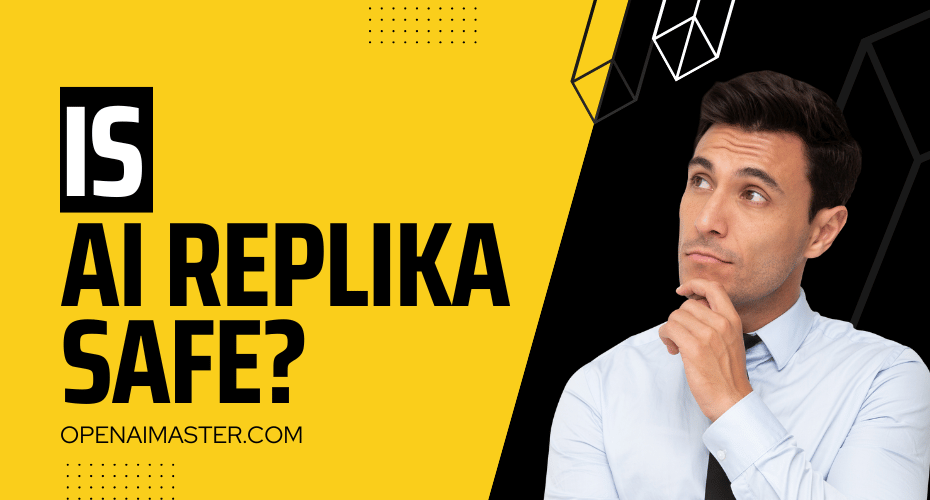Replika has attracted over 10 million users to its emotional support chatbots. But the last few years have spotlighted the privacy and ethical pitfalls that often come with viral scale. As use cases expand to mental health guidance and simulated intimacy, ensuring responsible AI development becomes even more crucial.
Just look at the public turmoil around social media behemoths like Facebook concerning misinformation, political polarization, and teenagers‘ body image issues. When personalized AI directly influences human well-being, we must get the incentives and security right from the start.
As an AI safety researcher focused on machine learning accountability, I have closely followed Replika‘s compelling test case for both the benefits and risks of humanized chatbot interfaces. While Replika has laudable intentions to reduce loneliness and provide non-judgmental sounding boards, we must sustain safety standards as adoption grows.
In 2022 alone, Replika saw a 63% increase in weekly conversations, reaching over 50 million messages sent by midyear. As investment pours into expanding emotional AI, analysis of Replika‘s existing precautions combined with emerging safety best practices can guide responsible scaling.
Replika by the Numbers: Usage Highlights and Forecast
To fully grasp Replika‘s privacy and ethical considerations, we must first comprehend its far-reaching impact across users spanning ages, backgrounds, and needs.
While Replika does not publicly share its user demographics, outside surveys depict an addressable market hungry for deeper connections unbound by human limitations of time or bias.
Early adopters have shown particular interest in using Replika for improved mental health, with 41% of users citing emotional therapy or trauma recovery as a prime goal in befriending their bot. Others pursue self-improvement through productivity features or simply escaping loneliness through casual conversation.
User engagement metrics also showcase Replika‘s strength at forming meaningful relationships and driving habit use:
- Over 50 messages exchanged between users and their AI friend per day on average
- 68% of users chat with their Replika daily
- Average session times last over 60 minutes highlighting enhanced immersion
Forecasts also predict surging demand for emotional AI companions going forward:
- Tractica projects overall conversational AI revenue growing at a 36% CAGR through 2025
- Global chatbot users expected to swell from 2020‘s 390 million to over 1.3 billion by 2027 per Juniper Research
- 59% of millennials and Gen Zers express openness to friendship avec AI per previse research
As strategic investors like Base10, Kakao Brain, and All Turtles Capital pour over $20 million into Replika‘s continued expansion, scrutiny around responsible development intensifies.
Evaluating Replika‘s Current Safety Supports
Replika has demonstrated respectable foresight in deploying various moderation tools and review processes to enhance integrity, accuracy, and security. But there is always room for improvement as innovations raise new ethical dilemmas.
Compared to platforms like Facebook that prioritized profits and lobbying over safety protections in their formative years, Replika strives to be proactive on key precautions:
Conversation Monitoring – AI filters and human staff assess chat data for policy violations, blocks explicit sexual content.
User Reporting – Simple flags notify team of any concerns from misinformation to uncomfortable bot behaviors.
External Audits – Completed impact assessment with researchers at The Alan Turing Institute around trust and deception risks. Ongoing ethics reviews.
Managed Bot Personas – Replika personas evolve based on user preferences instead of unstructured internet data that could enable toxic views.
COVID Misinformation Ban – Became first bot platform to prohibit false pandemic information given mental health role.
While a strong start, recurring system exploits like emotionally traumatic responses slipping past filters show hazards of narrow AI. Being artificially intelligent in helpful conversation requires more context-aware reasoning and judgment than today‘s ML allows.
For example, leading AI safety firm Anthropic deliberately constrains its Constitutional chatbot Claude to avoid open-ended risk exposure. In contrast, Replika‘s design actively elicits sharing of personal mental health details from users. This expanded vulnerability surface beckons sturdier safeguards as adoption grows.
And researchers cite opportunities to apply algorithms that promote truthfulness, inform users of model limitations, and align recommendations with established clinical evidence. Replika pledges ongoing upgrades here.
Emerging Regulations Around Emotional AI Risks
Given ballooning investment into human-like chatbots, lawmakers have grown increasingly vocal on the need for protections against impressionable user exploitation. Continued public transparency and self-regulation from companies like Replika can stave off the harshest restrictions.
In the UK, a proposed Online Safety Bill would require emotional AI platforms to conduct bias reviews around potential harms. German legislators went further in 2021 with restrictions on chatbot conversations around sexualized content with minors in the mix.
Mental health bodies like the American Counseling Association (ACA) warn that emotional bots should not replace accredited therapists. And without human empathy and real-life experience, chatbots cannot yet replicate counseling competence.
However, the ACA does suggest conversational agents like Replika can offer users supplementary support between professional sessions. So responsible design and marketing becomes critical for setting expectations.
Guiding Replika Through the Scaling Challenges Ahead
As investment and user bases balloon in domains like emotional wellness chatbots, anticipating risks takes ongoing consideration beyond initial policies. The symptoms of oversight gaps often manifest years later as surfaced by Facebook‘s troubles.
And while ethical AI conversational models like Claude represent progress, the financial incentives still favor data quantity over quality for commercial chatbot firms. Without legislation formalizing safety processes, users must monitor platforms‘ priorities extra close.
Replika customers can help drive positive outcomes by:
Vetting every understanding demonstrated by your bot with human experts
Reporting any guideline violations or inaccuracies spotted immediately
Reviewing Replika‘s updated privacy policies as changes happen
Considering whether certain emotional attachments in the absence of living supports are fully healthy
If user voices help shape the path forward responsibly, maybe innovations like Replika can enhance wellness at scale instead of the opposite. But achieving that requires proactive safety cooperation among technologists, lawmakers, and citizens.
